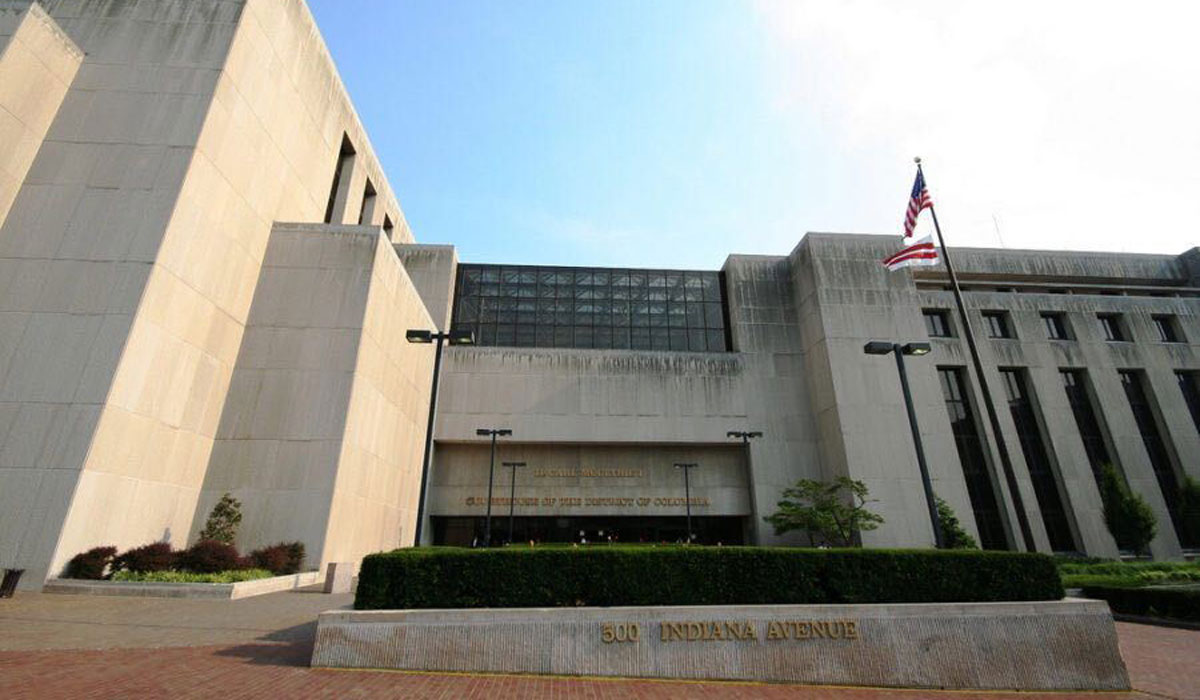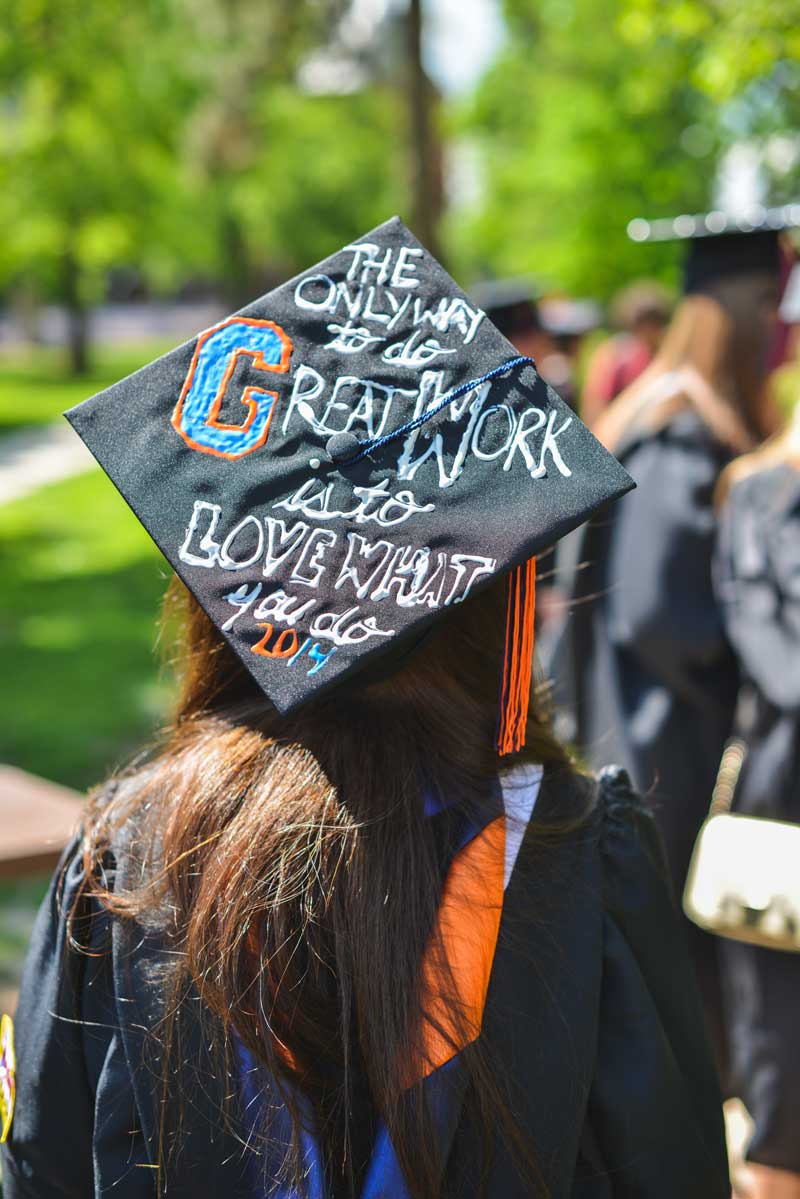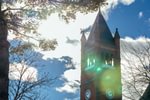

Amada Bond ’14 has a special place in her heart for child welfare and juvenile justice. After her parents passed away during her childhood, she was placed with a relative by a family judge in the juvenile court system.
While she was young, Bond understood the impact of her situation—her life was in the hands of the court.
She recalled a lack of support during her case, spurring a deeply personal interest in social change. As she grew older and began thinking about a college education, she knew she wanted to pursue a major that explored public policy and social justice as it pertained to minors. Ultimately, she created her own major at Gettysburg College—juvenile law and deviance.
“I recognized that if I wanted to be a catalyst for change, I needed to examine public policy and how it impacts these systems,” Bond said.

Today, she is aiming to fulfill her promise to herself to be a catalyst for change. Following the path she began to pave with her individualized major at Gettysburg, Bond has continually strived to be a fearless advocate for youth, including during her time as a pro bono Court Appointed Special Advocate (CASA) in Allegheny County, Pa., while attending the University of Pittsburgh School of Law. This life-changing experience, among others at different juvenile facilities, grew her interest in the field that she is now intent on pursuing a PhD in criminal justice and social public policy in the future.
“Working at those facilities was incredibly eye-opening for me because it exposed systematic failures of our juvenile justice and child welfare system, despite these systems being tasked with protecting our youth,” she said.
Her self-designed major pulled from disciplines that overlap with law, such as sociology, political science, psychology, education, and public policy. By combining a variety of subjects, Bond strove to achieve a holistic perspective on social justice. As she described it, her major taught her “the eternal value of going against the grain and pursuing your passion.”
“It is incredible that Gettysburg promotes this individuality—this idea that we are not bound by society’s ideals—success is defined by how you impact the world,” said Bond. “Designing this major and really delving into what systemic change could look like for the juvenile justice system really shaped the trajectory of my career path—and it all started at Gettysburg.”
Upon receiving her master’s in law in 2017 and completing her pro bono work, Bond transitioned to CASA DC in July 2018. At its core, CASA selectively recruits, trains, and supervises members of the community to be appointed as independent advocates. These court cases involve fostering youths who are victims of abuse and/or neglect and have been removed from their homes as a result. As they saw an influx of cases regarding youth survivors of human trafficking and sex crimes, Bond began to focus more intently on advocating for policy and procedural changes to help those survivors.

Through her work on various cases, Bond identified a significant need for specialized court advocacy for crimes involving rape, sexual abuse, sexual assault, and other forms of sexual violence. Given her experience, CASA’s senior leadership, alongside the help of her colleagues and supervisors, tasked Bond with leading EMPOWER.
“To provide more context for that need, 58.1 percent of my cases were sex crimes cases involving rape or sexual abuse, 19.4 percent of my cases had high risk factors for human trafficking or suspected human trafficking, and 22.6 percent of my cases were in HOPE Court, a specialized court for human trafficking survivors,” said Bond.
Bond’s vision for EMPOWER meant creating a safe space for court-involved youth survivors of human trafficking and sex crimes and building a strong alliance across all of the agencies that served, protected, and sought to understand them. CASAs who participate in this program receive a robust and intensive training in order to exclusively handle these cases, which Bond strategically designed. She also developed a two-step curriculum for all in the program by advocating for those youth survivors in their personal lives and communities, which included community outreach to strengthen partnerships, especially with D.C.’s Metropolitan Police Department.
“I wanted to empower the youth and give them the tools they needed to heal and overcome their trauma,” she continued. “The idea for the name stemmed from my own personal experience in addressing injustice. As someone with a law and criminal justice background, I get immensely worked up about all things involving injustice.”
At the end of the day, injustice motivates Bond to educate herself and her community through activism, mentorship, and empowerment.
“Being a catalyst for change is not stagnant; it’s not a one-time thing that happens,” Bond reflected. “You should always be looking at issues in your community, in society, and in your field in order to find solutions that lead the change by educating and empowering others. No change is too small.”
For Bond, her work with EMPOWER will stay with her for the rest of her professional career. Combining her passion for criminal justice research with her current role as a project coordinator at a law enforcement think tank, she plans to continue her research and work toward being a catalyst for change, including inspiring the next generation of Gettysburgians.
“Always be fueled by your own passions and purpose, not by other people,” Bond said she would advise current students. “Say, ‘Watch me,’ if someone questions your ability to excel at something.”
With passion and persistence, she believes anyone will become fearless and unstoppable in all that they plan to accomplish.
Discover your own passion by exploring our individualized major.
By Samantha Hann ’21 Photos by Eric Lee '15 and courtesy of Amada Bond ’14
Posted: 05/27/21


